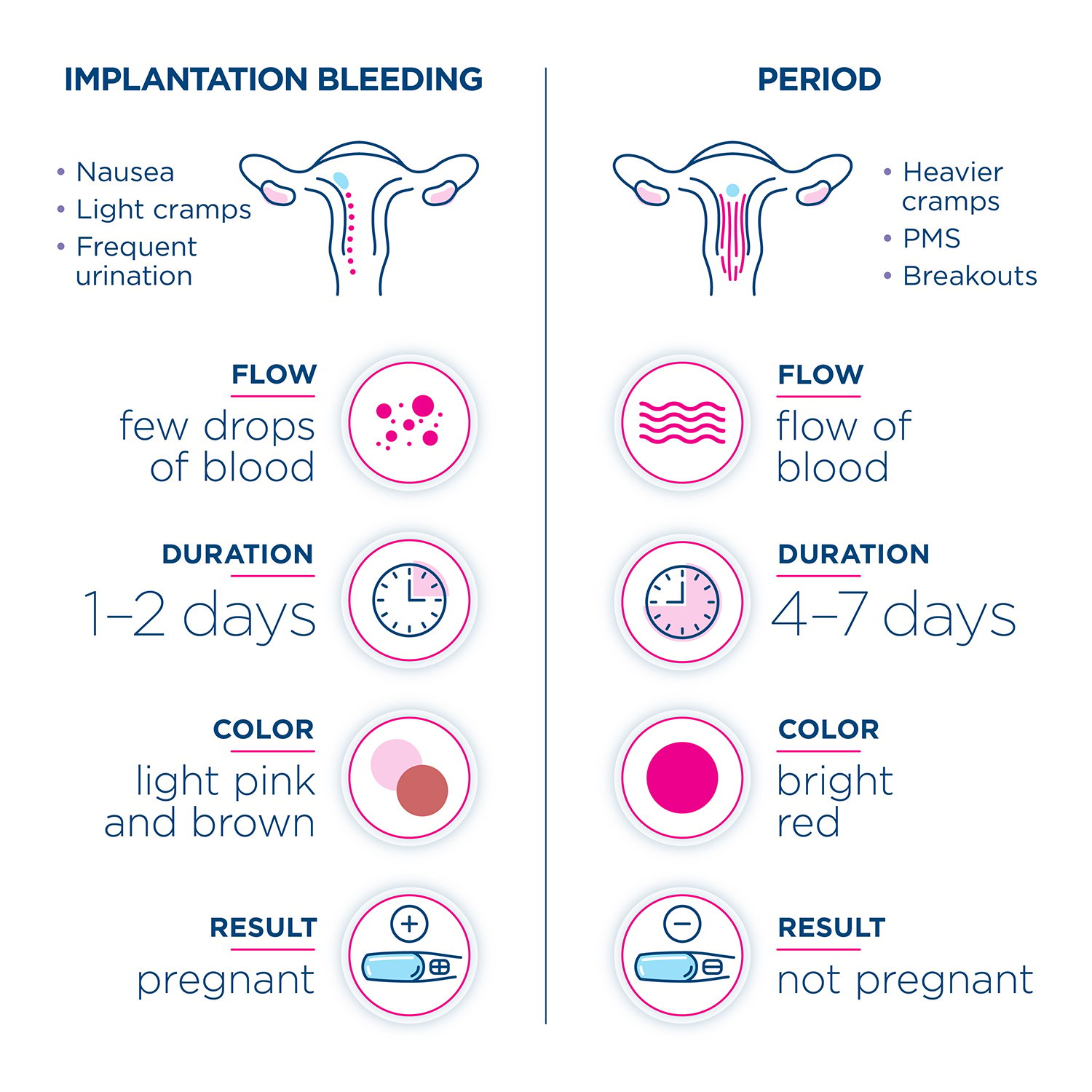
A little spotting early in pregnancy doesn’t necessarily mean there is a problem. Implantation bleeding can be an early sign of pregnancy and just means your fertilised egg has implanted in the womb. However, if you see blood and are in any way concerned, it’s best to get it checked out to rule out any risks. If you want to know more about implantation bleeding, what it is, what it looks like, and when does implantation bleeding happen, then read on to learn more.
What is implantation bleeding?
Implantation bleeding is the light spotting or tiny bit of bleeding that happens when a fertilised egg – a rapidly dividing cluster of cells called a blastocyst – attaches to the lining of the uterus.
When does implantation bleeding occur?
You may sometimes experience some slight bleeding or spotting due to implantation around one to two weeks after fertilisation, around the same time you’d normally expect your period.
How can I tell the difference between implantation bleeding and my period?
Implantation bleeding is very light vs. the bleeding you’d get during your period. The main difference you may notice is the amount of blood you see and color.
So what does implantation bleeding look like? When you have implantation bleeding you’ll most likely see a few drops of blood on your underwear that would not even cover a panty liner.
Implantation bleeding can also be brown or light pink color. But you can’t be sure whether any form of bleeding, in any color, in early pregnancy is harmless. If you are concerned in any way, see your doctor.

What are the signs and symptoms of implantation bleeding?
You may experience a few drops of blood and light cramps for a day or so around the time of implantation – you may not even know you are pregnant when this happens. Then again, it is also common to have none of these. However you may have other early signs of pregnancy, like:
- nausea
- fatigue
- tender breasts
- frequent urination
- cravings or aversions

How much bleeding is safe during implantation?
Most of the time implantation bleeding doesn’t signal a problem. However, if you do notice any blood and are concerned, see a doctor as there is no way to know how much bleeding is safe if you’re pregnant.
How long does implantation bleeding last and how heavy is the bleeding?
Implantation bleeding should only be light spotting (just a few drops of blood), which can last for a few days.
How long after implantation bleeding can I take a pregnancy test?
You can take a test right away, if you haven’t done so before, especially since implantation bleeding usually happens around the time you’d expect your period! Some pregnancy tests are sensitive enough to detect the hCG hormone your urine 6 days before your missed period (5 days before your expected period). If you test too soon, you may get a false negative result, as the quantities of hCG may be too low to detect, even if you are pregnant. If you see a negative result, but still think you are pregnant, wait 3 days before testing again. HCG rises rapidly in early pregnancy, so by then you should see a positive result if you are pregnant.
Does every woman get implantation bleeding?
No. Bleeding only happens in 15-25% of early pregnancies1. In most cases, spotting is a normal sign of implantation, but any bleeding should be checked out if you’re worried, because it could still be a symptom of a miscarriage or an ectopic pregnancy.
Implantation bleeding is usually nothing to worry about. Chances are you may not even know you’re pregnant when you notice it. If you notice any spotting around the date you would have your period, and you suspect you are pregnant – take a pregnancy test. If you are pregnant, talk to your healthcare provider and mention any bleeding you have, just so any other factors can be ruled out.
- Snell, B. J. (2009, November 12). Assessment and management of bleeding in the first trimester of pregnancy [Abstract]. Journal of Midwifery & Women's Health, 54(6), 483-491. Retrieved from http://onlinelibrary.wiley.com/doi/10.1016/j.jmwh.2009.08.007/abstract





